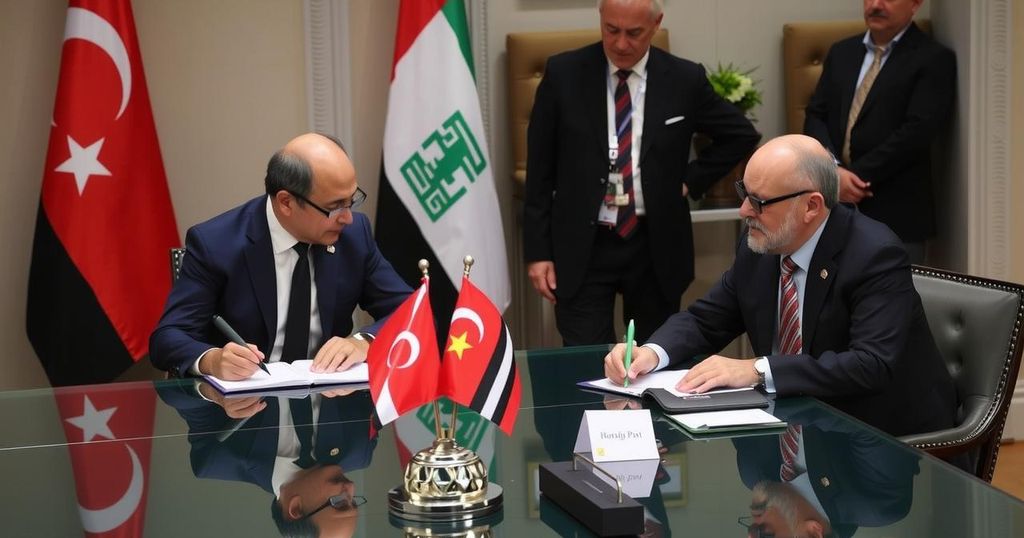On December 28, 2024, Libyan Minister Walid Ellafi met with Syria’s new leader, Ahmed Al Sharaa, to discuss energy cooperation, migration challenges, and strengthening diplomatic ties. They addressed the importance of collaboration, particularly concerning security issues and the integration of displaced Syrians. This meeting signifies a pivotal moment in the evolving relationship between Libya and Syria following significant changes in Syrian leadership.
On December 28, 2024, a high-ranking official from Libya, Walid Ellafi, met with Syria’s newly appointed leader, Ahmed Al Sharaa, to address various critical issues such as energy cooperation, migration, and diplomatic relations. During the discussions, Ellafi expressed Libya’s support for the Syrian government during its transitional phase and emphasized the necessity of collaboration, particularly regarding security matters. The significance of establishing stronger diplomatic ties was also highlighted, as they aim to elevate diplomatic representation between the two nations. Ellafi noted the shared concerns surrounding illegal immigration, particularly in relation to Syrians who have been fleeing civil unrest since 2011.
Ellafi further remarked on the importance of expanding bilateral relations, particularly in energy and trade sectors, as Syria seeks to navigate the aftermath of the recent leadership changes following the downfall of Bashar Al Assad. Moreover, the Libyan Minister of State for Communication indicated hopes for appointing a permanent ambassador to strengthen diplomatic engagement, a move that reflects a commitment to rebuilding relations harmed since the 2012 diplomatic freeze.
This meeting occurs in a broader context of regional realignments and attempts by several countries, including Bahrain, to engage with Syria’s new authorities as they work towards establishing a new governance framework. Since the sudden shift in power dynamics following Assad’s removal, the international community has expressed interest in supporting a peaceful transition, with many nations recognizing the importance of dialogue with Sharaa’s administration. As diplomatic efforts progress, the relationship between Libya and Syria may evolve significantly into a new chapter of cooperation following years of strained ties due to the Syrian civil war and Libya’s internal divisions.
The meeting between the Libyan official and the Syrian leader occurs during a transformative period in Syria, following the overthrow of long-standing President Bashar Al Assad by a coalition of Islamist factions, including Hayat Tahrir Al Sham (HTS) on December 8, 2024. This change in leadership marks a decisive shift in the political landscape of Syria, prompting neighboring countries, including Libya, to reassess their diplomatic engagements and bilateral relations. Libya’s government, recognized by the United Nations, operates under complex political conditions, where rival factions vie for power. This context is crucial for understanding the urgency and implications of renewed diplomatic talks aimed at enhancing cooperation in areas such as energy and migration, particularly concerning displaced Syrians seeking opportunities abroad.
In summary, the meeting between Libyan Minister Walid Ellafi and Syria’s new leader Ahmed Al Sharaa marks a significant step towards reestablishing diplomatic relations between the two nations. They discussed critical issues like migration, energy collaboration, and enhancing security cooperation. Given the changing political landscape in Syria post-Assad, Libya’s engagement reflects a broader regional shift towards establishing new alliances and diplomatic ties in response to evolving circumstances, which may pave the way for future cooperation between the two countries.
Original Source: jordantimes.com






